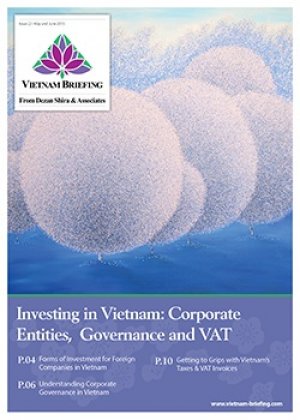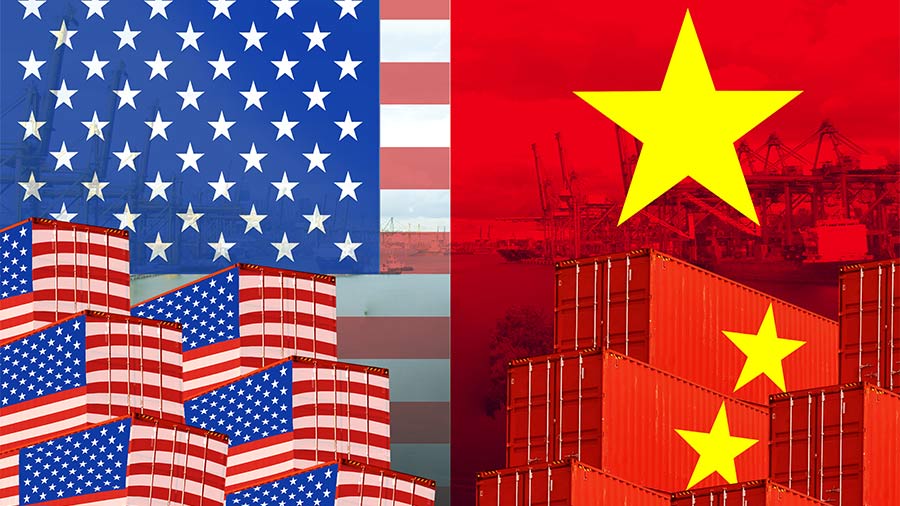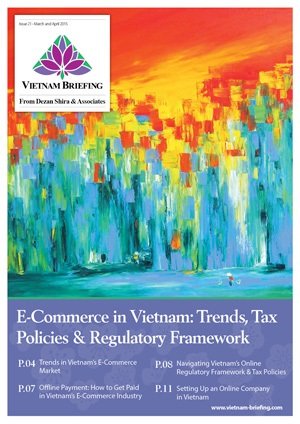Trademarks in Vietnam – Part One
By: Dezan Shira & Associates
Editor: Ellena Brunetti
In part one of this multi-part series, Vietnam Briefing takes a closer look at trademarks, how to get them, and their enforcement in the country.
A trademark, also known as marks, brands or brand names, is defined by the article 4.16 of the 2009 IP law as a sign used to distinguish the goods or services of one producer/service provider from those of another.
Conditions to be fulfilled to be registered:
To be protected under the Vietnamese trademark law, a trademark must meet three conditions, according to the articles 72 and 73 of the IP law of 2009:
- First, it could be visible in the form of words, letters, drawings or images, including holograms, or a coordinate thereof, represented in one or more colors. Thus, smells and sounds can’t be registered as trademark.
- Furthermore, the trademark must be able to distinguish the trademark owner’s goods and services from others, meaning it should consists of memorable and noticeable elements or combination of elements.
- Finally, to be able to be registered, a trademark must not fall within the signs excluded from being able to be registered.
Legal Framework for Trademark Protection in Vietnam
 RELATED: State by State – Vietnam and Ohio Trade
RELATED: State by State – Vietnam and Ohio Trade
The legal trademark law framework should be studied in light of Vietnam’s accession to the WTO in 2007. Indeed, as a WTO member, Vietnam has committed itself to bringing stronger IP laws in order to better protect intellectual property rights, including those related to trademark protection. Thus, since its accession in 2007, Vietnam has amended laws to implement the WTO’s Agreement on Trade-Related Aspects of Intellectual Property Rights and thus to bring its trademark law into line with international standards.
Indeed, Vietnam is a state member of several multilateral agreements that aims to better protect trademark law, such as:
- The Paris Convention for the Protection of Industrial Property (entered into force in Vietnam in 1949)
- The Madrid Agreement Concerning the International Registration of Marks, briefly known as Madrid Agreement (entered into force in Vietnam in 1939).
- The Berne Convention on Copyrights ( Vietnam became a member in 2004).
- The Protocol Relating to the Madrid Agreement Concerning the International Registration of Marks, briefly known as Madrid Protocol (2006).
- World Trade Organization (WTO) – Agreement on Trade-Related Aspects of Intellectual Property Rights (TRIPS Agreement) (entered into force in Vietnam in 2007)
 RELATED: Dezan Shira & Associates’ Corporate Establishment Services
RELATED: Dezan Shira & Associates’ Corporate Establishment Services
In so doing, Vietnam has launched a significant overhaul of the law governing trademarks, including:
- Law No. 36/2009/QH12 of June 19, 2009, amending and supplementing a Number of Articles of the Law No. 50/2005/QH11 of November 29, 2005, on Intellectual Property.
- Revision of the Criminal Code in 2009 by the Law No. 37/2009/QH12 (amending some provisions of Criminal Code 1999).
- Regarding the Civil code of 2005, its revision has already been fore planned.
The government has also introduced a wide range of decrees relating to trademarks protection and penalties, among which:
- Decree No. 97/2010/ND-CP, dated September 21, 2010, regarding sanctions for administrative violations in the area of industrial property.
- Decree No. 85/2011/ND-CP of September 20, 2011, amending and supplementing a Number of Articles of the Government’s Decree No. 100/ 2006/ND-CP of September 21, 2006, detailing and guiding a Number of Articles of the Civil Code and the Intellectual Property Law regarding Copyright and Related Rights.
- The Decree No 08/2013/ND-CP dated January 10, 2013, on sanctions for administrative violations in the trade and production of counterfeit goods. It recognizes counterfeiting of certain essential products, namely, foods, medicines, fertilizers, food additives, breeds of plants and animals, animal feed, veterinary medicines, pesticides, cosmetics, medical equipment, cement, building steel and helmets, as a very serious offence for which the penalty can extend up to D70,000,000 (around US$3,500).
- Circular No. 37/2011/TT-BKHCN of December 27, 2011, of the Minister of Science and Technology Guiding the Implementation of a Number of Articles of the Government’s Decree No. 97/2010/ND-CP of September 21, 2010, on Sanctioning of Administrative Violations in Industrial Property (2011).
- Circular No. 13/2015/TT-BTC of January 30, 2015, of the Ministry of Finance, Defining Inspection, Supervision, Temporary Suspension of Customs Procedures For Exported and Imported Goods that are Subjects of Intellectual Property Rights; Control of Counterfeit Goods and Goods Infringing Intellectual Property Rights.
|
Asia Briefing Ltd. is a subsidiary of Dezan Shira & Associates. Dezan Shira is a specialist foreign direct investment practice, providing corporate establishment, business advisory, tax advisory and compliance, accounting, payroll, due diligence and financial review services to multinationals investing in China, Hong Kong, India, Vietnam, Singapore and the rest of ASEAN. For further information, please email vietnam@dezshira.com or visit www.dezshira.com. Stay up to date with the latest business and investment trends in Asia by subscribing to our complimentary update service featuring news, commentary and regulatory insight. |
Investing in Vietnam: Corporate Entities, Governance and VAT
 In this issue of Vietnam Briefing Magazine, we provide readers with an understanding of the impact of Vietnam’s new Laws on Enterprises and Investment. We begin by discussing the various forms of corporate entities which foreign investors may establish in Vietnam. We then explain the corporate governance framework under the new Law on Enterprises, before showing you how Vietnam’s VAT invoice system works in practice.
In this issue of Vietnam Briefing Magazine, we provide readers with an understanding of the impact of Vietnam’s new Laws on Enterprises and Investment. We begin by discussing the various forms of corporate entities which foreign investors may establish in Vietnam. We then explain the corporate governance framework under the new Law on Enterprises, before showing you how Vietnam’s VAT invoice system works in practice.
E-Commerce in Vietnam: Trends, Tax Policies & Regulatory Framework
In this issue of Vietnam Briefing Magazine, we provide readers with a complete understanding of Vietnam’s e-commerce industry. We begin by highlighting existing trends in the market, paying special attention to scope for foreign investment. We look at means for online sellers to receive payment in Vietnam, examine the industry’s tax and regulatory framework, and discuss how a foreign retailer can actually establish an online company in Vietnam.
 Tax, Accounting, and Audit in Vietnam 2014-2015
Tax, Accounting, and Audit in Vietnam 2014-2015
The first edition of Tax, Accounting, and Audit in Vietnam, published in 2014, offers a comprehensive overview of the major taxes foreign investors are likely to encounter when establishing or operating a business in Vietnam, as well as other tax-relevant obligations. This concise, detailed, yet pragmatic guide is ideal for CFOs, compliance officers and heads of accounting who need to be able to navigate the complex tax and accounting landscape in Vietnam.
- Previous Article Vietnam News Brief: Private Car Services, New Visa Regulations, and Industry Liberalizations
- Next Article Vietnam Regulatory Brief: Minimum Wage Hikes, Business License Fines, a New Circular on Mineral Exports, and Auto Part Tax Cuts

































